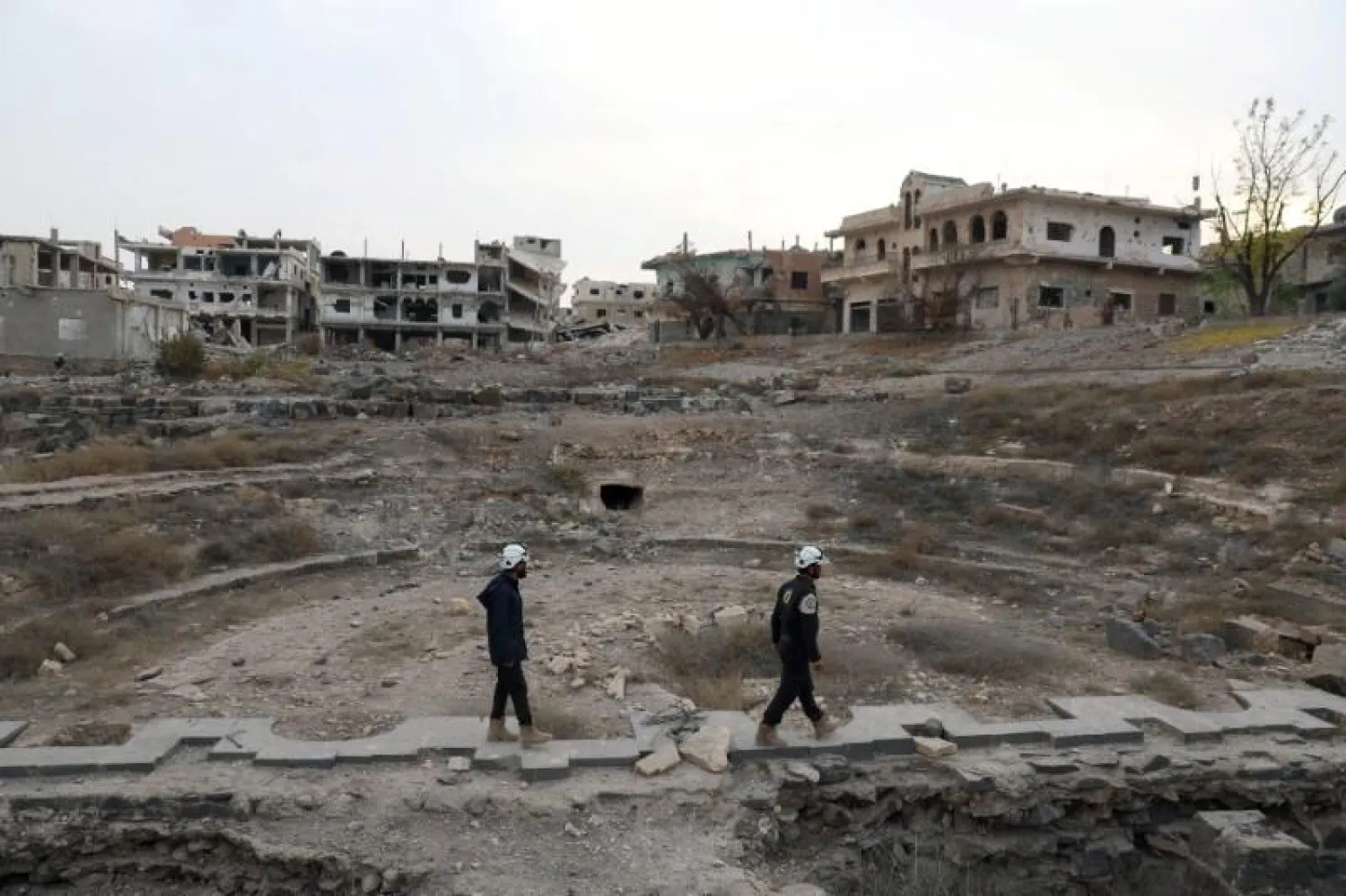Five officers and 20 members of the Syrian regime forces were killed in battles in areas north-east of Daraa, which was bombed by the regime.
On Tuesday, the regime began intensifying its bombardment on the eastern province of Daraa, threatening an imminent military operation against opposition factions in the southern province.
Head of the Syrian Observatory for Human Rights (SOHR), Rami Abdul Rahman indicated that: “Regime troops made their first advance in the area since the military escalation on Tuesday, seizing the villages of al-Bustan and al-Shumariya in the eastern part of Daraa province.”
According to Abdul Rahman, the regime's forces aim to separate the eastern countryside between the north and the south, "making it easier for their operations and increasing pressure on opposition factions and allowing them to move faster."
On Saturday, state-owned Syrian Arab News Agency (SANA) reported: “Army units on Saturday continued to target hotbeds and dens of the terrorist organizations in the area of al-Lajat in Daraa eastern countryside in the framework of the war against terrorism.”
The southern region is important for its geographical location on the border Israel and Jordan, apart from its proximity to Damascus.
The shelling and clashes are currently focused on a part of rebel territory between eastern countryside of Daraa and the western part of the neighboring province Soweida, added SOHR.
The army seems to want to separate the area into a northern and southern section, Abdul Rahman said, “to facilitate their operations and increase the pressure on rebel factions, allowing it to advance more quickly.”
SOHR reported that Saturday clashes killed over 8 members and the army forces and injured 20 others, while at least 10 armed fighters of the opposition forces were killed.
The Observatory also recorded the displacement of over 12 thousand civilian over three days, mostly from Daraa’s eastern countryside.
Hmeimim Russian Air Base stated that 5 commanders and 20 members were killed in the clashes.
The opposition factions control 70 percent of Quneitra's border with Israel, as well as Daraa, where all peaceful protests against the regime began in 2011.
On Thursday, the United Nations issued a statement expressing its grave concern about “recent military escalation, including ground offensives and aerial bombardments, in southwestern Syria. The attacks have resulted in the displacement of thousands of civilians, the majority of whom are moving towards the Jordanian border.”
Estimates indicate that there are about 750 thousand people in areas controlled by opposition factions south of the country.
Joint Central Operations Room denied "unequivocally any progress made by the regime and its Iranian militias in the Syrian south."
It pointed out that regime’s media is trying, through these allegations, to promote false victories in the south of Syria, after it failed to advance militarily, with several casualties among its ranks.
Hmeimim Russian Air Base said that the leader of al-Omari brigades, Wajdi Abu Thalith, announced becoming member of the Syrian regime after negotiations between representatives of the Russian Reconciliation Center and the regime with the Free Syrian Army.
Thus, the towns of Dama and Shiah and part of the village of Jadal, which were under Thalith’s control were transferred to the control of the regime.
According to al-Dorar al-Shamiya opposition network, rebel factions have inflicted heavy losses upon regime forces and its militias, during the ongoing battles in eastern countryside of Daraa.
Al-Lajat operations said its fighters foiled an attempt by Assad's forces and Iranian militias on the Dalafah and Harran axis, east of Daraa, and killed five of them.
Meanwhile, field sources reported that violent clashes accompanied by heavy shelling have been taking place since early morning between Lajjat operations room on one hand and the Assad and Iranian militia on the other, on the outskirts of the towns of al-Shomra, al-Dama, Shiyah and al-Bustan in al-Lujat area northeast of Daraa.









